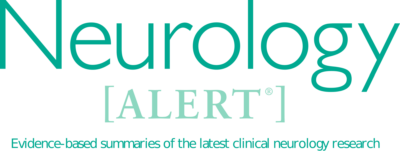
Neurology Alert – September 1, 2024
September 1, 2024
View Issues
-
Incidental Cerebral Microinfarcts in Patients with Active Cancer
In this study of patients with active cancers, 3.6% had asymptomatic, incidental acute ischemic stroke lesions on magnetic resonance imaging and had three times the risk of having a subsequent clinical stroke in the next month.
-
Can Large Vessel Strokes Be Treated with IV Thrombolysis in an Extended Time Window?
In this trial involving Chinese patients with ischemic stroke caused by large vessel occlusion, treatment with tenecteplase administered 4.5 to 24 hours after stroke onset resulted in less disability and similar survival compared to standard medical treatment.
-
Clinical Criteria for a Limbic-Predominant Amnestic Neurodegenerative Syndrome
Predominant limbic degeneration in older geriatric patients (ages 75 years and older) with slowly progressive episodic memory loss with fluorodeoxyglucose-positron emission tomography medial temporal hypometabolism limbic-predominant age-related TDP-43 encephalopathy (LATE) involves a progressive degeneration of the amygdala, then hippocampus, then middle frontal gyrus.
-
Anchoring Alzheimer’s Disease Along an Amyloid Timeline
In 601 individuals from Wisconsin-based cohorts with amyloid-beta and tau positron emission tomography scans, the magnitude and topographical spread of tau pathology increased with longer duration of amyloid-beta positivity, and the cognitive decline was steepest in those with the longest duration of amyloid-beta positivity and elevated entorhinal tau.
-
CSF Analysis May Help in the Diagnosis of Dementia with Lewy Bodies
This paper demonstrated that cerebrospinal fluid (CSF) alpha-synuclein seeding assays can distinguish between clinically diagnosed dementia with Lewy bodies and controls, and that the presence of hyposmia with core clinical features had the highest predictive value of detecting CSF alpha-synuclein.
